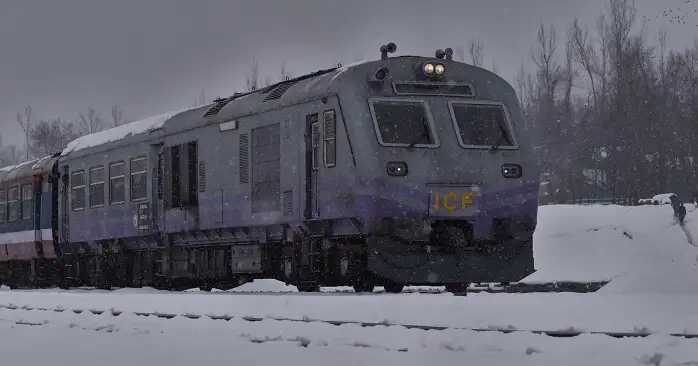Context:
The Prime Minister of India expected to inaugurate the first direct train from Delhi to Kashmir in January 2025.
More on the News
- The train will cover a distance of 800 km in less than 13 hours.
- A 17-km stretch of the 272-km-long Udhampur-Srinagar-Baramulla Rail Link (USBRL) Project between Reasi and Katra is expected to be inaugurated in January 2025.
- As of July 2024, 255 km of the USBRL project has been completed, and work is underway on the remaining 17 km.
- This last phase of the USBRL Project proposed a 62-km-long track, 45 km of which has been completed, which falls between Katra and Sangaldan.
- The work on the remaining 17 km, which holds four stations between Reasi and Katra, and on the T33 tunnel, is expected to be ready for trial by December 2024.
- Currently, Kashmir has a limited railway service, with trains running between Sangaldan-Banihal in the Jammu division and Srinagar-Baramulla in the Kashmir Valley.
- The Indian Railways network connects up to Udhampur and Katra in Jammu, but no direct train currently links Jammu to the Kashmir Valley.
The Udhampur-Srinagar-Baramulla Rail Link (USBRL) Project
The USBRL Project, consisting of a 272 km rail link to connect Kashmir to the rest of India, was approved by the PV Narasimha Rao government in 1995 at the approximate cost of Rs 2,500 crore.
However, the work gained momentum after it was declared a national project by then PM Atal Bihari Vajpayee in 2002.
The first phase between the Qazigund-Baramulla section of 118 km was commissioned in October 2009, followed by the 18-km Banihal-Qazigund in June 2013. Another 25 km long section between Udhampur and Katra was inaugurated in July 2014.
The world’s highest railway arch bridge over the Chenab River at a height of 359 m (1,178 ft) also comes under the crucial link from the Katra to the Banihal section of USBRL.
- An arch bridge is shaped as an upward convex curved arch to sustain vertical loads.
Significance of the Project
- Economic Boost: Facilitates efficient and cost-effective transportation of Kashmiri products like apples, dry fruits, pashmina shawls, and handicrafts to national markets, enhancing trade and local income.
- Reduced Transportation Costs: Lowers the cost of importing daily-use items into the Valley, benefiting consumers and improving affordability.
- Improved Connectivity: Bridges the gap between Jammu and Kashmir and the rest of India, promoting tourism and fostering socio-economic integration.
- All-Weather Access: Ensures reliable year-round transportation, overcoming challenges posed by harsh winters and landslides that disrupt road travel.

